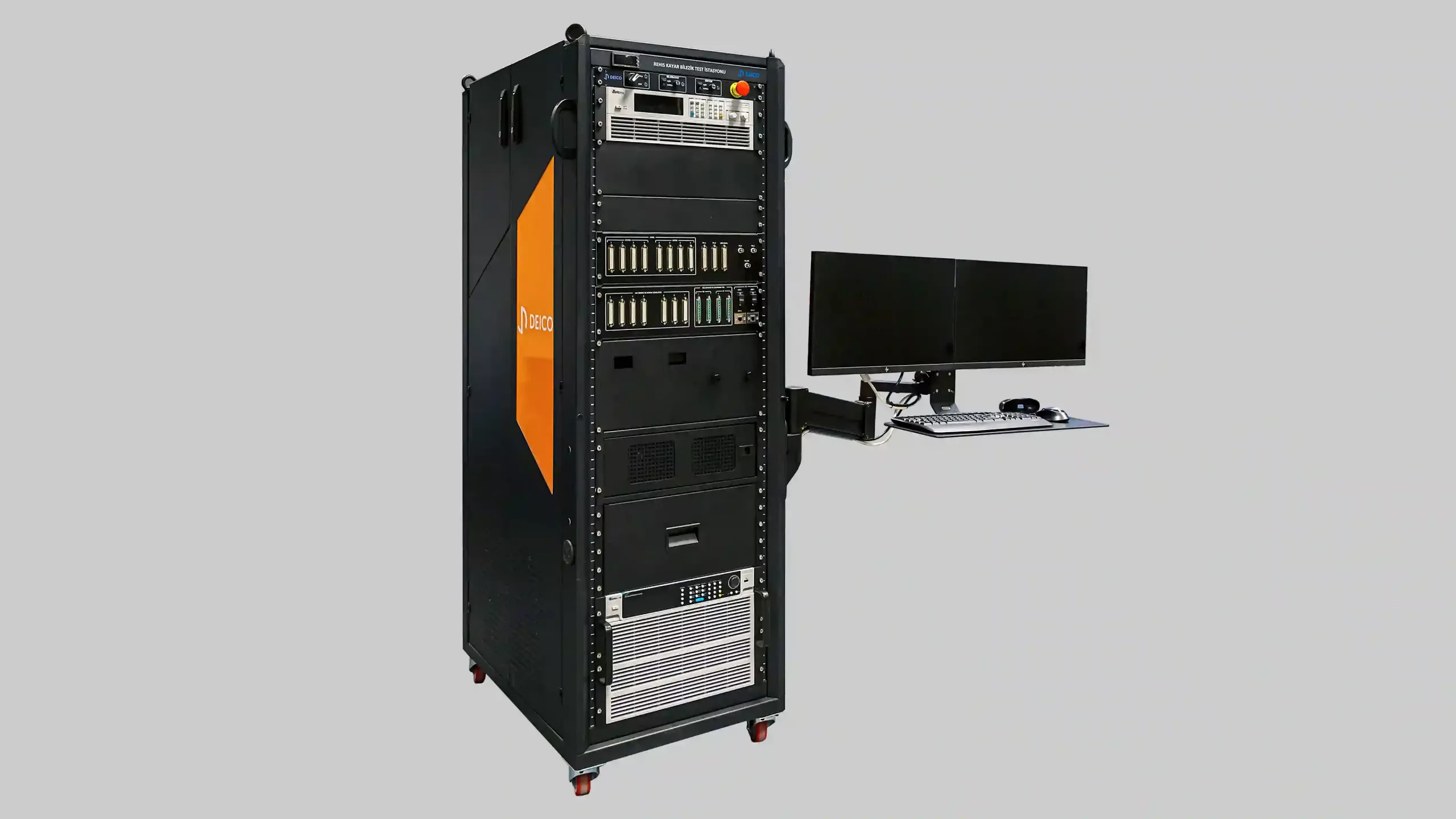Battery Management HIL Systems
Battery Management HIL Systems are specialized Hardware-in-the-Loop platforms used to ensure the performance and reliability of Battery Management Systems (BMS).
Electric Mobility
Renewable Energy
Aerospace

The Role of Battery Management Systems
A Battery Management System is the intelligence behind modern energy storage solutions. It monitors and manages battery parameters, including state-of-charge (SOC), state-of-health (SOH), voltage, current, and temperature, while ensuring safe operation under all conditions. Additionally, it protects the battery pack from overcharging, deep discharge, thermal runaway, and cell imbalance.
Given the critical role of the BMS, rigorous testing is essential to guarantee its reliability and performance. Battery Management HIL Systems provide a platform to simulate real-world conditions, enabling comprehensive testing without the need for a physical battery pack.
Key Features of Battery Management HIL Systems
- Battery Pack Emulation: Battery Management HIL Systems can emulate the electrical characteristics of individual cells or complete battery packs. This includes cell balancing behavior, varying cell states, and realistic voltage and current profiles.
- Fault Injection: Testing fault scenarios such as cell failures, temperature sensor errors, or communication malfunctions is crucial. HIL systems allow for controlled fault injection to evaluate the BMS’s fault-handling capabilities.
- Thermal and Electrical Simulation: Advanced HIL systems simulate thermal behavior alongside electrical characteristics to test the BMS under various environmental conditions, such as extreme heat or cold.
- High-Voltage and High-Current Testing: Many modern battery systems operate at high voltage and current levels, particularly in electric vehicles and industrial energy storage. Battery Management HIL Systems are designed to handle these conditions safely and accurately.
- Flexible Communication Interfaces: BMS units often rely on communication protocols like CAN, CAN-FD, or Ethernet. HIL systems provide comprehensive support for these interfaces, enabling seamless testing.
Applications Across Industries
- Automotive: Testing the BMS for electric vehicles (EVs) and hybrid electric vehicles (HEVs) to ensure safe and efficient battery operation under varying driving conditions.
- Renewable Energy: Validating the performance of battery systems used in solar or wind energy storage.
- Aerospace: Testing BMS units for aircraft systems, where reliability is non-negotiable.
- Consumer Electronics: Ensuring the safety and longevity of batteries in laptops, smartphones, and other portable devices.
Advantages of Battery Management HIL Systems
- Safety: Testing in a virtual environment eliminates the risk of damaging expensive batteries or causing hazardous situations.
- Cost-Effectiveness: Reduces the need for physical battery packs during development and validation phases.
- Repeatability: Enables consistent and repeatable test scenarios for accurate validation.
- Scalability: Allows testing of BMS units for systems ranging from small consumer electronics to large industrial setups.
DEICO Battery Management HIL Systems
- Battery Cell Emulation: High-fidelity simulation of battery cells with adjustable voltage, current, and temperature parameters.
- Fault Injection Modules: SLSC-based modules for simulating cell imbalances, sensor failures, and communication errors.
- Thermal Simulation Capabilities: Integrated thermal models to test the BMS under realistic operating conditions.
- Customizable Interfaces: Support for various communication protocols such as CAN, CAN-FD, and Ethernet, ensuring seamless integration with your BMS architecture.
- High-Voltage and High-Current Support: Safe and precise testing for systems operating at industrial-level power ratings.
In addition, we provide flexible software solutions built on platforms like LabVIEW and VeriStand, allowing for comprehensive test automation and real-time analysis. Battery Management HIL Systems are essential for ensuring the safety, efficiency, and reliability of modern energy storage solutions. They provide engineers with the tools to validate and refine BMS designs under diverse operating conditions, paving the way for innovations in battery technology. With our expertise and customizable solutions, you can confidently develop and validate your BMS systems to meet the demands of a rapidly evolving energy landscape.